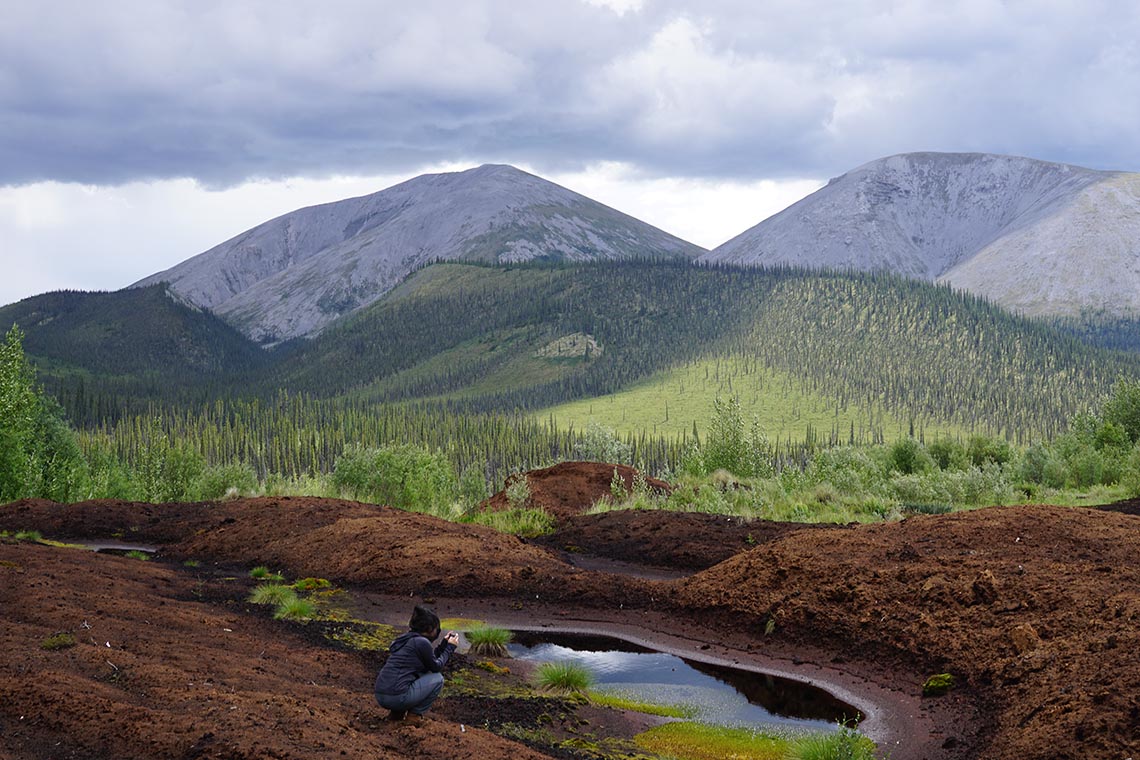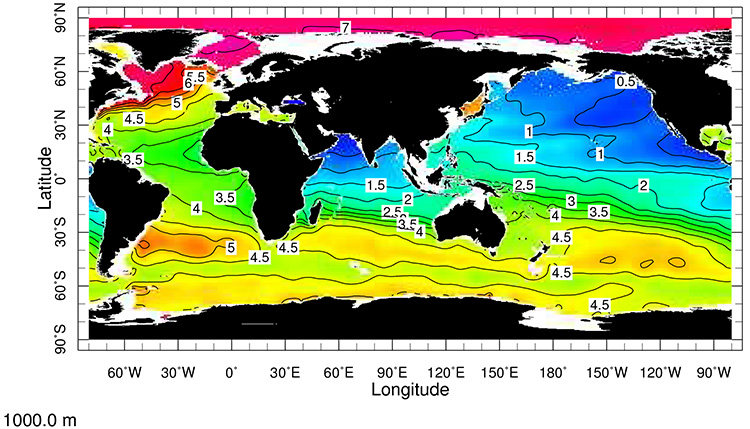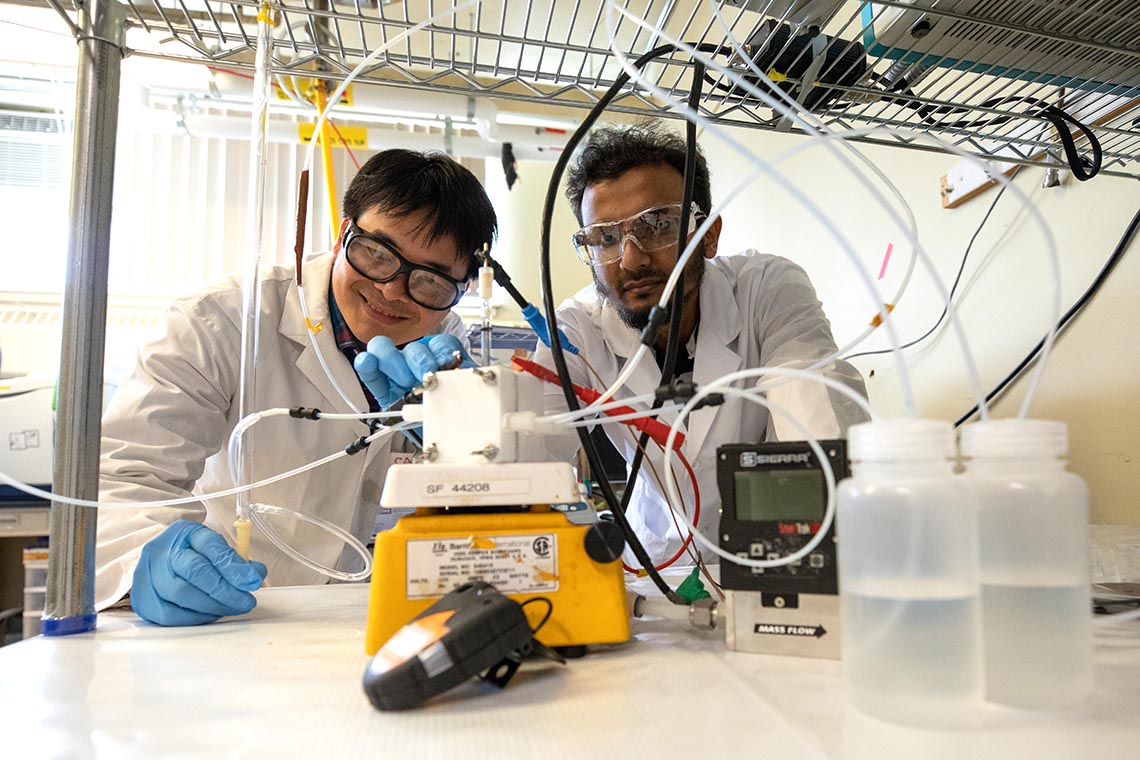Tag: Climate science

Forests for the future: U of T researcher seeks to make trees more resilient amid a changing climate
Katharina Braeutigam, a plant epigeneticist at the University of Toronto, wants to grow trees fit for a future climate.
By studying plants at the molecular level, Braeutigam looks at how trees respond to external signals such as drought, and how they record “memories” of stress. She also researches how they respond to internal signals – specifically those that determine sex.

Secrets of the permafrost: New U of T research reveals evidence of climate change in the Yukon
A new University of Toronto study confirms that recent climate warming in the central Yukon region has surpassed the warmest temperatures experienced in the previous 13,600 years, a finding that could have important implications in the context of current global warming trends.

Planning for climate change impact: U of T students roll out designs for a south Florida county
A group of architecture students at the University of Toronto tapped into their creativity, planning and design skills to reimagine new ways southern Florida can tackle climate change-related flooding, rising water levels and salt water entering canals and corroding existing infrastructure.

Oil sands emissions greatly underestimated, research shows
A new comprehensive modeling assessment of contamination in the Athabasca Oil Sands Region indicates that officially reported emissions of certain hazardous air pollutants have been greatly underestimated.

U of T scientists draw new connections between climate change and warming oceans
It happened once before, and it could happen again. That’s the warning from ocean scientists at the University of Toronto and the University of California, Santa Cruz in a study published recently in Science that shows how an increase in CO2 in Earth’s atmosphere more than 50 million years ago dramatically changed the chemistry of the planet’s oceans.

New catalyst developed at U of T upgrades greenhouse gas into renewable hydrocarbons
A new technology from the University of Toronto’s Faculty of Applied Science & Engineering is taking a substantial step towards enabling manufacturers to create plastics out of two key ingredients: sunshine and pollution.
